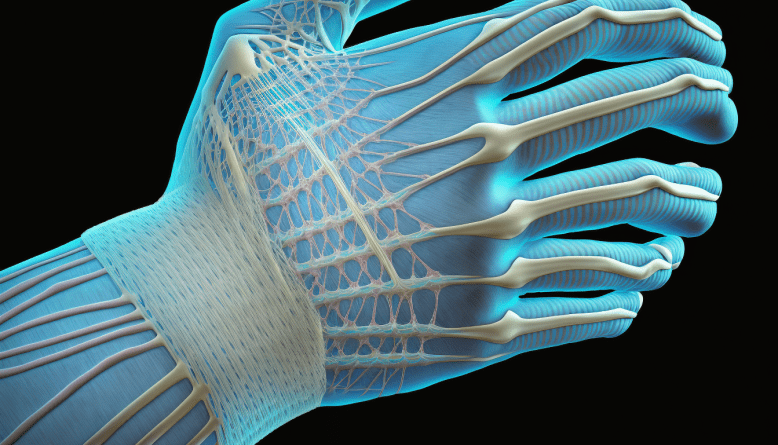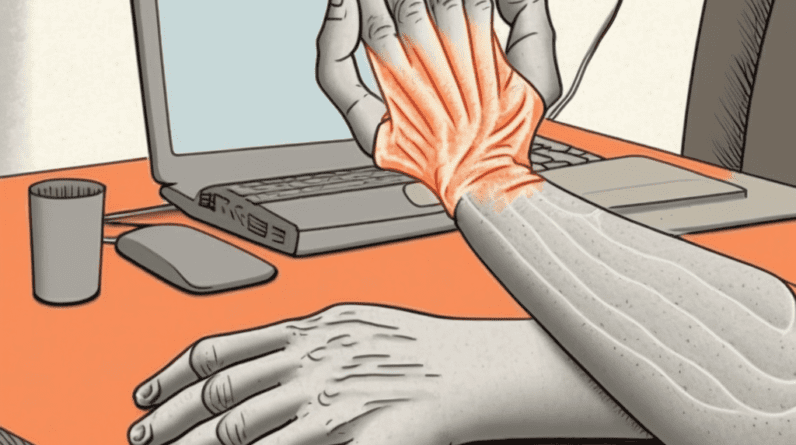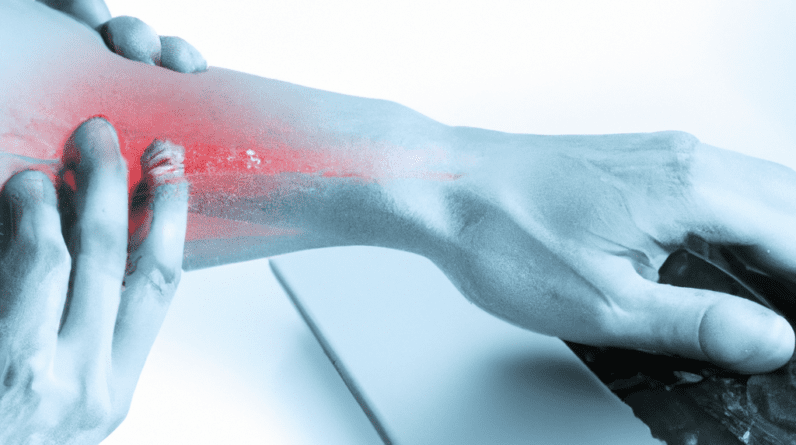As a writer, I have spent countless hours typing away at my keyboard, and I can tell you firsthand that it’s not always easy on your hands. For those who use a computer or engage in repetitive hand motions at work, you may be familiar with the symptoms of carpal tunnel syndrome.
While the condition may be more commonly associated with wrist pain and numbness, it’s not uncommon for carpal tunnel sufferers to experience pain in their thumbs as well. In this article, we’ll explore the causes of thumb pain in relation to carpal tunnel syndrome and what you can do to alleviate the discomfort.
What is Carpal Tunnel Syndrome?
Carpal tunnel syndrome is a condition that affects the median nerve, which runs from the forearm to the hand. The median nerve is responsible for providing sensation to the palm and fingers, except for the little finger. It also controls some of the small muscles in the hand.
Carpal tunnel syndrome occurs when the carpal tunnel, which is a narrow passage in the wrist, becomes compressed or “pinched”. This can happen as a result of repetitive hand motions, or due to other factors like genetics or injury. When this happens, pressure is placed on the median nerve, leading to symptoms like pain, tingling, numbness, and weakness in the hand.
While carpal tunnel syndrome is most common in people who engage in repetitive hand motions like typing, it can also occur as a result of other medical conditions like rheumatoid arthritis or diabetes.
Thumb Pain and Carpal Tunnel Syndrome
Thumb pain is a common symptom of carpal tunnel syndrome, as the median nerve runs through the wrist and down to the thumb. When the nerve is compressed, it can cause pain, numbness, and tingling in the thumb.
One common cause of thumb pain with carpal tunnel syndrome is forceful or repetitive gripping. This can cause strain on the small muscles in the hand and thumb, leading to pain and discomfort. Many people who engage in manual labor or activities like playing an instrument may experience this type of thumb pain.
Another cause of thumb pain with carpal tunnel syndrome is the development of trigger points. Trigger points are tender areas in the muscles that can cause referred pain in other parts of the body. In the case of carpal tunnel syndrome, trigger points in the forearm or hand can cause pain in the thumb.
Finally, thumb pain can also be a result of nerve damage caused by untreated carpal tunnel syndrome. If left untreated, carpal tunnel syndrome can cause permanent nerve damage, leading to chronic pain and disability.
What You Can Do to Relieve Thumb Pain
If you’re experiencing thumb pain as a result of carpal tunnel syndrome, there are several things you can do to relieve the discomfort.
First, it’s important to try to reduce the amount of force and repetitive motions you engage in with your hands. This could mean taking frequent breaks at work, or modifying your keyboard or mouse to reduce strain on your wrists.
You may also want to consider wearing a wrist brace at night to help keep your wrist in a neutral position and alleviate pressure on the median nerve. Additionally, exercises that stretch and strengthen the muscles in your hands and forearms can help reduce pain and prevent further injury.
If your thumb pain is particularly severe, you may need to seek medical treatment. Your doctor may recommend over-the-counter pain relievers or suggest corticosteroid injections to reduce inflammation and relieve pain.
In more severe cases of carpal tunnel syndrome, surgery may be necessary to decompress the median nerve and alleviate symptoms.
Final Thoughts
Thumb pain can be a frustrating and uncomfortable symptom of carpal tunnel syndrome, but it doesn’t have to control your life. By taking steps to reduce strain on your wrists, performing hand and forearm exercises, and seeking medical treatment when necessary, you can alleviate thumb pain and prevent further injury. Don’t hesitate to reach out to your doctor if your thumb pain is interfering with your daily life or causing significant discomfort.





